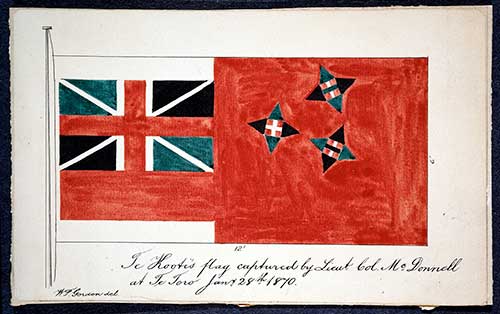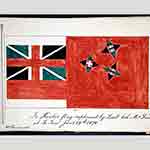
Recently, Harper Nielsen, a nine-year-old Australian girl, has had people re-looking at the Australian national anthem by refusing to stand and sing Advance Australia Fair in her school. The criticism of “for we are young and free” is not new – clearly ignoring indigenous Australians for whom that land has been home for millennia.
Criticism of Australia’s has meant another look at New Zealand’s. Canterbury’s Associate Professor in the Department of Political Science and International Relations, Bronwyn Hayward, tweets about New Zealand’s National Anthem that “the only explicitly pacifist anthem in the world and in the present global era its also worth celebrating its explicit statement of values that resist ‘division, corruption envy & hate’.”
In an opinion piece, Jonathan Milne notes that New Zealand’s Anthem mentions God 11 times. He continues that its lyrics are a radically subversive challenge:
1. Singers have long queried the cryptic call to “guard Pacific’s triple star”. But New Zealand folk music expert John Archer argues it was a reference to the three stars on Te Kooti’s flag of Māori independence [the image at the top of this post]. “Bracken was a committed Irish nationalist,” Archer says. “He was squarely on the side of the Māori from when he first arrived in New Zealand in 1869, during the middle of Te Kooti’s battles with colonial troops, in his campaign for independence for Tūhoe Māori.” That is reinforced by the cover of the 1878 music score, featuring a drawing of the Royal Standard alongside the flag of the independent tribes.
2. In an era in which the British Crown and the Anglican Church demanded greater obeisance than the domestic government, when ill-disciplined posses of colonialists laid waste to Māori villages and Chinese immigrants were subjected to the poll tax and other racist abuses, Bracken’s hymn was extraordinary in opening up New Zealand to “men of every creed and race”. (Spot the obvious omission!)
3. In a rallying call worthy of David Lange at the Oxford Union, Bracken warns that New Zealand should raise arms only is the cause is just and right, “From dissension, envy, hate / And corruption guard our state … Peace, not war, shall be our boast.”
4. Finally, despite the repeated references to God, the anthem utterly ignores New Zealand’s Head of State, the Queen. The significance of this cannot be understated: God Save the Queen had been New Zealand’s national anthem for 137 years, before God Defend was officially adopted in 1977. To fail to pay tribute to the Monarch can only be interpreted as deliberately subversive.
“God Defend New Zealand” has five verses, each in English and Māori. The Māori version is not a direct translation of the English version.
| English “God Defend New Zealand” | Māori “Aotearoa” | Māori “Aotearoa” translated |
|---|---|---|
|
1. God of Nations at Thy feet, 2. Men of every creed and race, 3. Peace, not war, shall be our boast, 4. Let our love for Thee increase, 5. May our mountains ever be |
1. E Ihowā Atua, 2. Ōna mano tāngata 3. Tōna mana kia tū! 4. Waiho tona takiwā 5. Tōna pai me toitū |
1. O Lord, God, 2. Let all people, 3. May it be forever prestigious, 4. Let its territory 5. Let its good features endure, |
If you appreciated this post, do remember to like the liturgy facebook page, use the RSS feed, and sign up for a not-very-often email, …
Image: Maori rebel flag – Flag of Te Kooti, 1870, by William Francis Gordon. Gift of W.F. Gordon, 1916. Te Papa (1992-0035-1631/2)




That’s a nice anthem!
Are you still keeping US nuclear powered warships away? All warships away?
Does NZ/A have warships?
We are nuclear free, David. Anything with nuclear power or weapons is not permitted here. Other ships – fine. Blessings.
In the US us progressive musicians are regularly called upon to amend old song words so as to shine relevance on social justice issues, where I have done I try to just choose kinder or fully inclusive as far as possible words; subversive has its place but for a song-of God-hymn why bother changing them if it’s to something just as divisive!
I wrote a verse for America the Beautiful for a service for Thanksgiving which ended ‘and lessons from the past’, since people didn’t want to ‘celebrate’ Native American genocide. Ray Charles version turned comedic:
‘You know, I wish I had somebody
to help me sing this
(America, America, God shed his grace on thee)
America, I love you America, you see
My God he done shed his grace on thee
And you oughta love him for it
Cause he, he, he ,he crowned thy good
He told me he would, with brotherhood
(From sea to shining Sea)
Oh lord, oh lord, I thank you Lord
(Shining sea)’
In the Unitarian Universalist Church we talk about historic significance too, ‘you wouldn’t paint over and destroy a historic painting because it’s offensive today’ type thing.
For me context is everything, when using words or images refer to the historic and cultural setting aside from performing the work, some people do lectures or side notes for example.
And balancing freedom of expression with how culturally it seems important to perform a certain piece, after all there’s plenty more, and more to come…I would not be part of a performance myself if I personally disagreed with the words strongly enough, or go to hear it.
Why it is culturally important for people to ‘bash each other’ with beautiful things is a matter of taste, I guess; there’s plenty of stuff to find offense with. Or not.
But when younger I do remember some subversive art I and others did, I probably would not do it now! We thought we were being cool, but it wasn’t a good ‘change-the-world bridge-building’ exercise.
There is a far more truly ‘pacific’ sense to ‘Aotearoa’